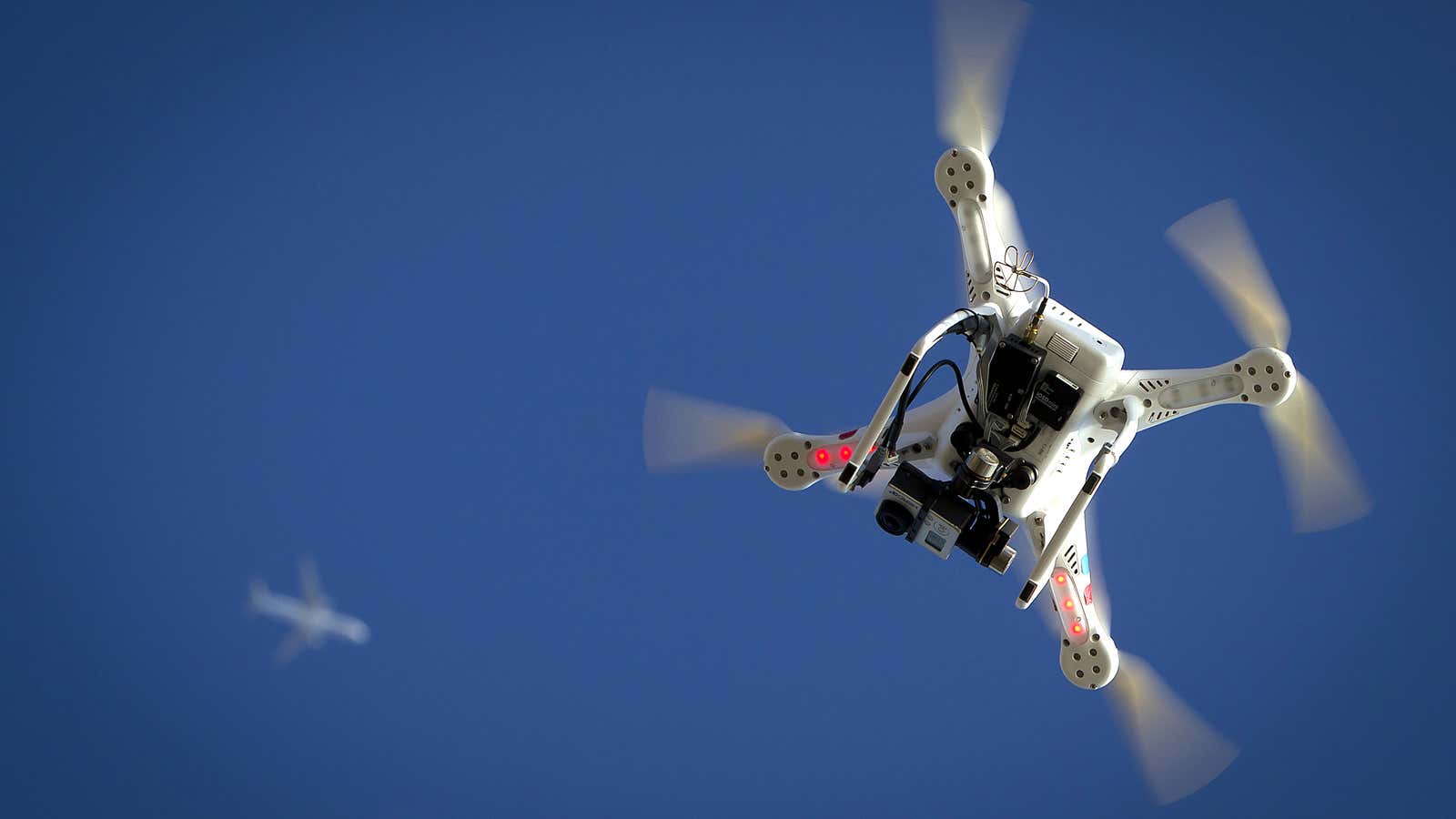The delivery mode of the future sounds terrible.
A recent NASA study (pdf) has found that the buzz of a drone is more annoying to people than the rumble of cars and trucks, a sign that the ambitions of Amazon, UPS and Domino’s Pizza to delivery their goods by drone could reshape the soundscape of cities and suburbs for the worse.
NASA researchers played recorded audio samples of a car, a truck, two differently sized vans, and drones for 38 subjects. They were not told what the sources of the sounds were. They were then asked to rate the sounds as “not at all annoying” to “extremely annoying.” (The test time totaled an hour but researchers broke it up, perhaps out of mercy, noting that “test subjects should not be asked to listen to annoying sounds for an hour straight.”)
The results showed “road vehicles seem to be systematically judged to be less annoying” than the drones. The drones were recorded at various speeds and altitudes, and their sound at higher altitudes made almost no difference in the annoyance level.
Why so much hate? One reason the researchers suggested: People are used to the sounds of cars and likely rely on them to get around, so they are more willing to accept their noise. We’ve become numb to the auto, even as noise pollution worsens as cities grow. Regulators might need to consider regulations not just about where drones can fly but when, lest your late-night pizza craving disturb your neighbors.
The results also mean that retailers like Amazon and others will likely face opposition to the noise the new delivery technology creates, if even they are indeed “’no louder than’ conventional package delivery solutions,” the researchers said.
In any case, the convenience of drone delivery will come with a price. Noise pollution is not only annoying—it is downright harmful to your health. Exposure to noise has been linked to heart disease, lower academic performance, and sleep problems.
